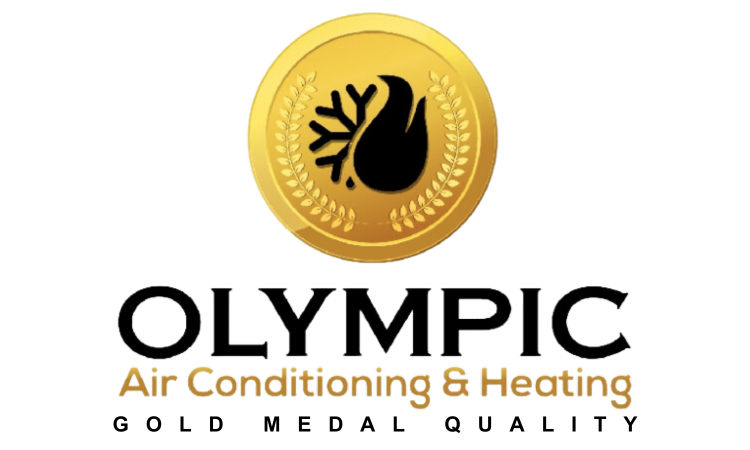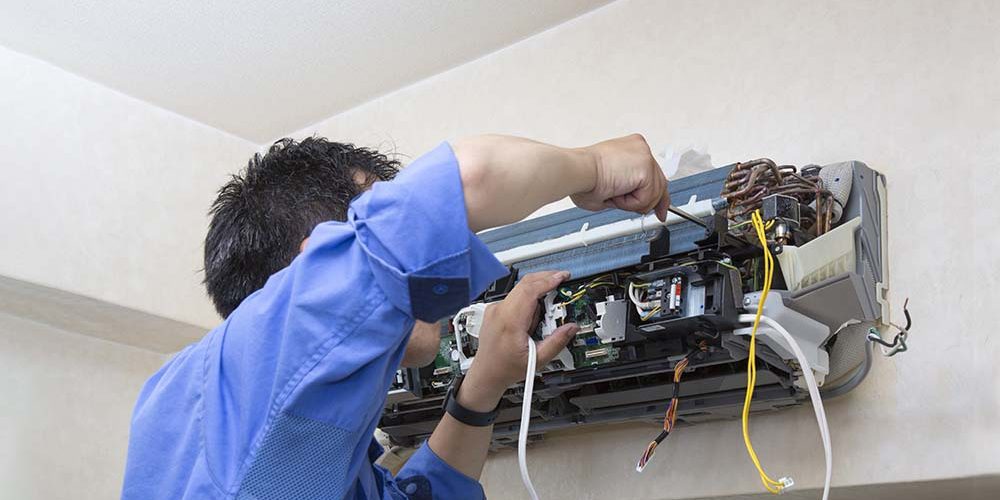Properly functioning air conditioning is crucial for comfort during the hot summer months. This comprehensive guide will provide you with all the necessary information on AC repair, from understanding your system to handling common issues and knowing when to call in the professionals.
Understanding Your AC System
Types of AC Systems
There are several types of air conditioning systems, each with unique characteristics and potential issues. Central AC systems are most common in homes and rely on ducts to distribute cool air. Window units are a compact option for single rooms, and split systems, which consist of an outdoor compressor unit and one or more indoor air handling units, offer efficiency without the need for ductwork. Knowing your system type is crucial for effective maintenance and AC repair.
Common Problems and Diagnostics
Familiarizing yourself with common issues can help you diagnose problems early. Listen for unusual noises, notice if your AC is failing to cool adequately, or check if there’s an unexpected increase in your energy bills—these could all be signs of AC issues. Simple troubleshooting steps include checking your thermostat settings, ensuring your air filters are clean, and making sure no debris is blocking the condenser unit.
Maintenance Tips
Regular maintenance is vital for keeping your AC system running efficiently. This includes routinely replacing or cleaning air filters, checking refrigerant levels, and ensuring the condensing unit is not obstructed by debris or vegetation. Seasonal preparations also play a part in maintaining your system, such as covering the outdoor unit during winter and ensuring it’s clean and ready to operate in the summer.
Step-by-Step AC Repair Guide
Tools and Safety
Before you begin any AC repair, make sure you have the right tools for the job, including screwdrivers, a multimeter, and a socket set, among others. Safety is paramount, so always turn off the power to the unit at the circuit breaker before starting any work to prevent electrical shocks.
Common Repair Procedures
Some common AC repair tasks you might be able to handle yourself include cleaning the evaporator and condenser coils and replacing worn belts and filters. These are relatively simple tasks that can prevent bigger problems and improve the efficiency of your system. For instance, keeping the coils clean ensures that heat transfer is not impeded, which can significantly decrease your AC’s effectiveness.
Advanced Repair Scenarios
For more complex issues, such as repairing or replacing a motor, fan blade, or electrical components, it might be best to contact a professional AC repair service. These tasks require specialized knowledge and tools to ensure the system is repaired safely and effectively.
Hiring a Professional AC Repair Service
Finding the Right Technician
When it’s time to call in a professional, make sure to choose a qualified and experienced technician. Look for someone who is certified and licensed, ideally with good reviews or recommendations from trusted sources. A reputable technician should be willing to provide a detailed estimate and explain the necessary repairs.
What to Expect from a Service Visit
During a professional AC repair service visit, the technician should inspect the system, diagnose the problem, and explain your options. They will perform necessary repairs, which may include replacing parts. Ensure they test the system post-repair to verify it is operating correctly.
Costs and Warranties
Understanding the costs associated with AC repair can help you budget accordingly. Ask for an itemized estimate upfront, and check if the repairs or parts are covered by warranty. Some repairs might be covered under your home’s warranty or the manufacturer’s warranty, which can save you money.
Preventing Future Issues
Upgrading Your AC System
If your AC system is old and requires frequent repairs, it might be more cost-effective to consider upgrading to a newer, more energy-efficient model. New AC systems offer improved technology and better cooling efficiency, which can reduce energy costs in the long run.
Annual Maintenance Plans
Investing in an annual maintenance plan can be a great way to ensure your system is inspected and maintained regularly, which can help prevent unexpected AC repair needs. These plans often include priority service and discounts on parts and repairs.
Technology and AC Efficiency
Modern advancements like smart thermostats and automated systems can significantly improve AC efficiency. These technologies allow you to better control your cooling systems, optimize energy use, and maintain consistent temperatures, which can extend the life of your AC system.
FAQs about AC Repair
- How often should my air conditioner be serviced?
It’s recommended to have your AC system serviced at least once a year, typically in the spring before the hot weather sets in. This ensures your system is running efficiently and can help prevent breakdowns during peak usage.
- What are the signs that my air conditioner needs repair?
Common signs include unusual noises, weak airflow, warm air blowing from the vents when it should be cool, a significant increase in utility bills, or frequent cycling on and off more than usual.
- Can I perform AC repairs myself?
While basic maintenance such as replacing filters and cleaning units can be done yourself, most AC repairs require professional skills and tools. Handling refrigerant, for example, can be hazardous and is regulated by law, requiring certification to manage.
- What is included in professional AC repair services?
Professional AC repair services typically include inspecting the system, diagnosing issues, and performing necessary repairs such as fixing leaks, recharging refrigerant, or replacing faulty components. Many services also provide a full system check-up to ensure everything is operating efficiently.
- How much does AC repair typically cost?
The cost of AC repair can vary widely depending on the nature of the problem and the parts required. Minor repairs may cost as little as $100 to $150, while more significant repairs like replacing a compressor can cost up to $1,000 or more.
- How can I prevent future AC issues?
Regular maintenance is key to preventing AC issues. This includes changing the air filter regularly, ensuring the outdoor unit is free from debris, and having periodic check-ups from a professional to catch potential problems early.
- What should I check before calling for an AC repair?
Before calling for a repair, check the thermostat to make sure it’s set correctly, replace or clean the air filter if it’s dirty, and ensure that all registers are open and not obstructed. Also, check the circuit breakers in case the system has tripped them.
- How long do air conditioning units typically last?
With proper maintenance, most air conditioning units can last between 15 to 20 years. However, the lifespan can be shorter or longer depending on usage patterns, regular maintenance, and environmental conditions.
- Is it worth repairing an old air conditioner, or should I replace it?
If your air conditioner is more than 10 years old and requires costly repairs, it might be more economical to replace it with a newer, more energy-efficient model. Consider the 50% rule: if the cost of repairs is more than 50% of the value of a new system, replacement is generally recommended.
- What does an AC tune-up entail?
An AC tune-up typically includes cleaning the condenser coils, calibrating the thermostat, checking the refrigerant level, tightening all electrical connections, lubricating moving parts, and inspecting the condensate drain for clogs.
Conclusion
Regular maintenance and timely AC repair are crucial for ensuring your air conditioning system works efficiently throughout its lifespan. Whether you handle basic maintenance yourself or hire professionals for more complex repairs, understanding how your AC system works and how to maintain it can save you time, money, and stress. This guide provides all the information you need to manage your AC repairs and maintenance confidently. Remember, keeping up with your AC maintenance not only keeps you cool during summer but also protects your investment in your home’s comfort systems.







